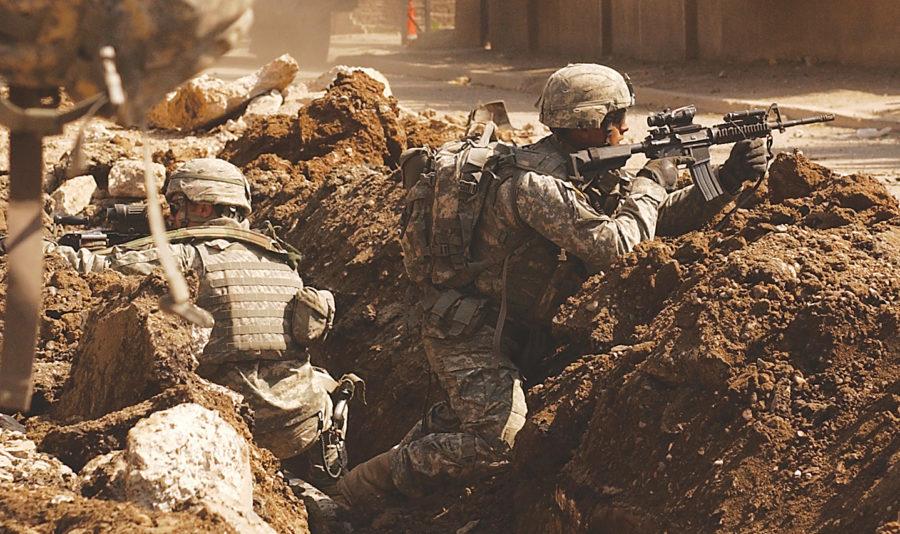Letter: The community some have forgotten
Opinion
October 31, 2010
Tom Brokaw wrote an op-ed in the New York Times recently urging current political candidates to pay more attention to the human and economic consequences of the wars. As a two-tour Marine veteran and senior at the University of California, Berkeley, I couldn’t agree more.
However, Brokaw’s call for the wars to become present in campaign speech is only the tip of the iceberg. The consequences of nine years of U.S. military conflict deserves much more than a seasonal call for thought among our political representatives. It demands consistent thinking from us all, and more importantly, it calls for a deeper understanding of the current crisis within the veteran community.
The human consequences of war do not end with the breath of the men who die in combat, or with the wounded. The war comes home with us and we remember things. This can be seen on the faces of the 18 young veterans who commit suicide everyday, or it can be heard in the voices of the 10,000 men and woman who place calls to the VA’s suicide prevention hotline every month.
When the Secretary of Veterans Affairs Gen. Eric Shinseki posed the question to himself, “Why do we know so much about suicides but still know so little about how to prevent them?” he replied, “Simple question, but we continue to be challenged.”
Shinseki’s challenges are real and have everyone in its grasp to include policymakers and the whole of American society. Researchers and health care professionals work to discover better programs and methods for dealing with returning veterans, only to observe suicide rates that remain consistently high.
These challenges, when viewed from the institution partly responsible for such tragedy, can often conceal the most obvious solution. Effective approaches are substituted for those more susceptible to accounting and budgetary analysis, creating an environment that dismisses solutions outside of economic ones.
The fact is returning veterans need community. And as immeasurable as that sounds, the results all of us seek lie here. Getting a veteran into a mental health appointment is nearly impossible without the encouragement of another vet. To us, we aren’t the ones that need help, and by seeing a professional, someone who has never known the inside of a combat boot, makes many of us nauseous.
Current community-building efforts for Iraq and Afghanistan veterans are in urgent need of funding, resources and strong leadership.
While the VFW and American Legion are iconic for building the older veteran communities, important leaders of the nation’s newest generation of veterans have lost sight of the essence of community.
This is clear when we look at Iraq and Afghanistan Veterans of America, the nation’s first and largest nonprofit organization for Iraq and Afghanistan veterans. Their efforts to build community begin and end with a lowly populated online network, also referred to as “Facebook for vets.”
And even more alarming was the statement made by Paul Rieckhoff, executive director and founder of IAVA, during his speech at The Second Annual Heroes Gala in New York City: “Community-of-Veterans.ORG is the veteran’s hall of the future.”
Many veterans today are deeply concerned with this statement and have come to question the technological infiltration that has proceeded to weaken the standard of community-building set by the heroes who returned from WWII.
We deserve more from the leaders who have set out on the mission to improve the lives of Iraq and Afghanistan veterans; we deserve help in building a lasting community.
In fact, the growing movement among veterans asking IAVA for permission and resources to allow local chapters in their cities and towns is a necessary request and certainly one worth fighting for.
As Brokaw calls on our political representatives to reconsider midterm election conversation this year, a defining passage in his book “The Greatest Generation” serves as an additional reminder to the candidates whose mission it is to build and lead the new veteran community. Surely our individual and collective survival are worthy of listening:
“WWII veterans did not abandon their service to their community and nation. It was encoded in them as a result of their personal experiences in WWII. In these times individual and collective survival depended on a selfless sense of commitment to a common cause.”
If you’re an Iraq or Afghanistan veteran interested in supporting the call for local veteran chapters in your city or town, sign the petition at www.whatfits.org







